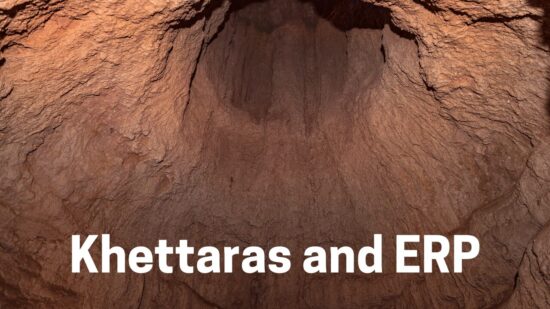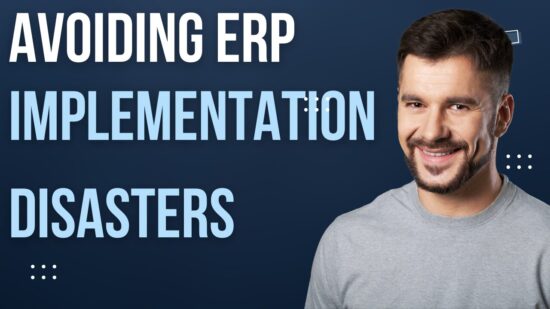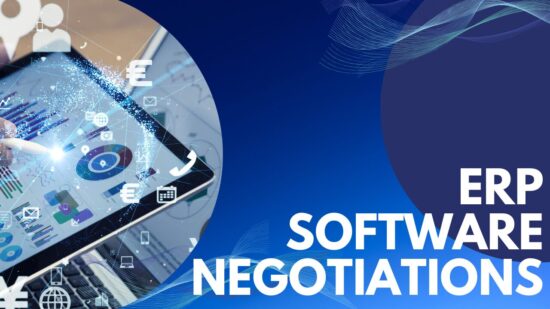ERP Systems for Construction Companies: Streamlining Project Management and Efficiency
The construction industry is a complex and detail-oriented sector that requires efficient management and organization of various processes, from procurement to project budgeting. As the competition grows and margins become tighter, companies in this industry must adopt technologies capable of streamlining operations and providing real-time information on performance and project status. One such technology that has become increasingly essential for construction companies is the Enterprise Resource Planning (ERP) system.
ERP systems facilitate effective planning, implementation, and management of construction projects by consolidating a wide range of functions into a unified platform. They offer a comprehensive suite of features, such as financial management, project scheduling, resource allocation, and document management, providing all stakeholders with the necessary information to make informed decisions. Moreover, integrating advanced technologies, such as artificial intelligence and machine learning, allows construction companies to evolve alongside the rapid business analytics revolution, empowering them to better respond to industry changes and client demands.
Key Takeaways
- ERP systems streamline construction processes through efficient management and real-time information
- Crucial features include financial management, project scheduling, and resource allocation.
- Adopting ERP systems provides a competitive advantage, facilitating growth and improved decision-making for construction companies.
Overview of ERP Systems in Construction
Managing projects, resources, and finances is crucial for successful operations in the construction industry. This is where enterprise resource planning (ERP) systems fit in. Construction ERP systems are software solutions designed for construction companies to manage all processes related to building projects effectively. This includes project management, production scheduling, materials procurement, inventory control, and accounting.
Several key factors make a construction ERP stand out:
- Project management capabilities: A robust ERP system should streamline project management and facilitate collaboration among team members. It should enable us to monitor project progress, control costs, and optimize resources.
- Integration with other tools: Construction ERP systems that integrate seamlessly with other software solutions, such as accounting and customer relationship management (CRM) tools, can help us make data-driven decisions and improve efficiency.
- Customization options: No two construction projects are the same, which is why it’s essential for an ERP system to offer customization options. This allows us to adjust the software to our specific needs and cater to various project types.
There are numerous construction ERP software options available in the market. Some of the top-rated ERP solutions for construction companies in 2024 include:
- ClickUp
- SAP Business One Professional
- Procore
- Acumatica
- Sage
- Microsoft Dynamics 365 Business Central
- Oracle Fusion Cloud
- PENTA
- Viewpoint
- RedTeam
Each ERP system offers unique features and benefits tailored to different construction sectors. As a result, we must analyze our company’s requirements and determine which ERP solution aligns best with our business processes and goals.
Adopting a construction ERP system is a strategic move that can significantly improve our company’s efficiency, cost management, and overall project success. We can better manage our construction projects and ensure long-term business growth by considering relevant factors and selecting the best solution for our needs.
Key Features of Construction ERP Software
Project Management and Scheduling
A crucial feature of construction ERP software is streamlined project management. Efficiently overseeing projects from start to finish allows us to coordinate with various departments and ensure smooth communication. Construction ERP software should include scheduling tools, resource allocation, and task management to ensure the timely delivery of projects.
For example:
- Scheduling: Identify and track dependencies and create automated workflows for effective project planning
- Resource allocation: Assign tasks to available team members and track their workload to prevent overworking or underutilization
- Task management: Categorize, prioritize, and monitor task progress with daily updates and progress bars
Budgeting and Financial Management
Financial oversight is another key feature of construction ERP software. It is essential to monitor all financial aspects of a project to ensure optimal budget adherence. Integration with accounting and financial systems is necessary for managing costs, revenues, and profitability. Construction ERP software should have specialized budgeting features such as:
- Cost management: Track labor, equipment, and materials costs in real-time
- Revenue tracking: Manage payments, change orders, and potential cost overruns
- Financial forecasting: Estimate future cash flows and expenses to control project budgets better
Supply Chain Management
An effective construction ERP system must offer supply chain coordination to manage materials procurement and deliveries. It ensures a seamless flow of materials and services from suppliers to job sites and warehouses. This feature also assists in:
- Vendor management: Onboard and manage suppliers, including payment terms, performance ratings, and certifications
- Inventory control: Stay updated on inventory levels, storage locations, and material tracking for optimal resource usage
- Procurement: Automate the procurement process, including purchase order creation, bid solicitation, and contract management
Compliance and Risk Management
Lastly, construction ERP software should provide a compliance and risk management module. This feature ensures that our projects adhere to regulatory standards, safety protocols, and risk mitigation. A well-designed ERP system should support:
- Document control: Store, access, and approve documents related to permits, contracts, and regulations
- Safety management: Monitor safety audits, incident reporting, and corrective actions taken in real-time
- Risk analysis: Identify potential risks and implement mitigation measures to reduce project setbacks
By incorporating these key features in construction ERP software, we can ensure smooth project execution, accurate budget management, and sustainable business growth in the construction industry.
Benefits of Implementing ERP in Construction
ERP (Enterprise Resource Planning) systems can provide various advantages to construction companies when implemented properly. This section will discuss the benefits of using an ERP system in the construction industry, including increased efficiency, real-time data access, improved communication, and cost savings.
Increased Efficiency
Implementing an ERP system in a construction company can help streamline processes and increase efficiency. It allows us to automate and standardize tasks, making the process consistent and reducing errors. The system can also provide improved resource management by tracking materials, equipment, labor costs, and project timelines. This can help us better allocate resources and manage project schedules, thus increasing the efficiency of our construction projects.
Real-Time Data Access
One of the primary benefits of using an ERP system in the construction industry is real-time data access. It enables us to keep track of all project-related information, such as budget, project status, and resource allocation, in one central location. This real-time access to data enables us to make informed decisions quickly, respond to project scope or schedule changes, and ensure that all project stakeholders are on the same page.
Improved Communication
ERP systems facilitate communication and collaboration between different departments and stakeholders within a construction company. By providing a single platform for sharing information, we can effectively manage our team and keep everyone informed about project updates, schedule changes, and any potential issues. This can help avoid misunderstandings and bottlenecks in the workflow, making the entire project process smoother and more efficient.
Cost Savings
When implemented correctly, an ERP system can result in substantial cost savings for construction companies. The system can help us identify inefficiencies, reduce errors, and manage resources more effectively, ultimately reducing costs. Proper inventory management, enabled by the ERP software, can help reduce waste and ensure that materials are available when needed. Additionally, improved communication and real-time data access can help prevent costly delays in project timelines, leading to overall cost savings for the company.
Choosing the Right ERP System
Assessing Business Requirements
Before selecting a construction ERP system, assessing your business requirements is crucial. Identifying your organization’s specific needs will help you choose a system that closely aligns with them. Some factors to consider include:
- Project types: Different projects like commercial, residential, industrial, or infrastructure may require unique ERP features.
- Company size: Larger contractors or construction companies may need more comprehensive solutions, while smaller firms might seek essential features.
- Budget constraints: Ensure your ERP solution fits your budget without sacrificing important functionality.
Cloud vs. On-Premises Solutions
Another major consideration for construction businesses is choosing cloud-based and on-premise ERP solutions. Both come with advantages and disadvantages:
Cloud-based ERP systems:
- Generally more cost-effective
- Scalable as your business grows
- Accessibility from anywhere with internet access
On-premises ERP systems:
- Offer more control over data security
- Potentially higher upfront costs
- Can be customized more extensively
Weigh out the pros and cons of each method and choose what makes the most sense for your business.
Integration with Existing Systems
Seamless integration with your company’s existing systems is essential for maximizing the effectiveness of your chosen ERP solution. Create a list of your current construction management, financial software, and other tools to ensure that your selected ERP solution supports integration with these platforms.
Vendor Evaluation and Selection
Lastly, when choosing a construction ERP system, carefully evaluating the vendors offering the solution is essential. Tips for evaluating vendors include:
- Experience: Assess the vendor’s experience in the construction industry and their understanding of your business’s specific challenges.
- Customer reviews: Look for customer reviews and ratings to understand user satisfaction better.
- Training and support: Review the vendor’s training and support options, such as online resources, tutorials, and technical assistance.
By considering these factors, your construction company is better poised to select the right ERP system, resulting in more efficient operations and greater success in the long run.
Implementation Strategies
Project Planning
When implementing an ERP system for construction companies, it’s essential to have a comprehensive plan that outlines the application development process and coordinates across various groups with different objectives. Establishing a project timeline and clearly defining the scope of the ERP software helps ensure that the solution meets all the business requirements and contributes to its success.
Data Migration
Data migration is a crucial step in an ERP implementation process. To maintain accuracy and avoid potential risks, planning this process carefully is necessary. Begin by assessing the existing data and identifying any inconsistencies or errors that may be present. Next, develop a strategy to migrate the data into the new ERP, ensuring that all vital project information is accounted for and cleaned up during migration.
User Training and Support
User training and support play an essential role in the ERP implementation process. A well-trained and supported team is likelier to adopt the new system effectively. Cultivate an environment that encourages learning by providing comprehensive training, user manuals, and ongoing support. This may include:
- In-person training sessions
- Online tutorials and webinars
- Access to support forums and communities
- Detailed documentation
Change Management
Change management is a crucial aspect of the ERP implementation process. It aims to minimize disruptions and ease the transition for all stakeholders involved. Key steps include:
- Communication: Keep stakeholders informed about the upcoming changes, benefits of the new system, and expected impact on their daily tasks.
- Transparency: Communicate the progress and upcoming milestones during the implementation process.
- Establish Champions: Identify key team members who will actively support and promote the new system, helping others adapt to the change.
- Feedback Loops: Create channels for staff to promptly provide feedback on the new system and address their concerns.
By following these implementation strategies, we set the stage for a successful ERP system rollout tailored for the construction industry.
Challenges of ERP Implementation
User Adoption
Implementing an ERP system in a construction company comes with challenges, one of which is user adoption. Many employees may resist change, particularly if they are comfortable with legacy systems. To combat this issue, providing thorough training and support is crucial to help users acclimate to the new system. Open communication and ongoing support are vital in ensuring a smooth transition and encouraging users to embrace the new system fully.
Cost Overruns
Another challenge faced during ERP implementation is cost overruns. Construction companies need to consider an ERP system’s initial investment and ongoing expenses. The financial aspects of implementation include:
- Software licensing fees
- Hardware acquisition and maintenance
- Costs for customization and integration
- Training and support fees
To avoid cost overruns, it is essential to establish a detailed budget and monitor expenses closely throughout the implementation process.
Data Security Concerns
Data security is critical for any construction company adopting an ERP system. With sensitive information, such as financial data and project details, being stored and exchanged, it is crucial to ensure that the system is secure. To address this challenge, construction firms should:
- Verify that the ERP provider follows stringent security protocols.
- Implement strong authentication methods for users.
- Conduct regular security audits and updates.
By taking these precautions, construction companies can minimize the risk of unauthorized access and maintain the security of their critical data.
Customization Complexity
Finally, the complexity of customization is another challenge to consider when implementing an ERP system. Construction companies require unique processes and workflows tailored to their specific needs. Customizing an ERP system to meet these requirements can be complicated, time-consuming, and expensive. To mitigate this challenge, it is essential to:
- Carefully assess the construction company’s needs before selecting an ERP solution.
- Collaborate closely with the ERP provider to ensure a seamless system adaptation.
- Continuously evaluate and adjust the customizations as the construction firm’s requirements evolve.
By addressing these challenges, construction companies can effectively implement an ERP system and reap the benefits of enhanced efficiency and improved project management.
Future Trends in Construction ERP Systems
As we look forward to the next few years, several key trends are emerging in construction enterprise resource planning (ERP) systems that will shape the industry’s future. This section will briefly discuss some of these exciting developments, including Mobile Technology, Predictive Analytics, IoT Integration, and Artificial Intelligence.
Mobile Technology
We expect a greater emphasis on mobile technology within construction ERP systems in the coming years. As more and more construction professionals rely on smartphones and tablets for their daily tasks, ERP systems must be compatible with these devices. This will enable users to access crucial information on the go, improving efficiency and communication among team members.
Predictive Analytics
Another trend that is gaining momentum is the use of predictive analytics in construction ERP systems. By analyzing historical data and determining patterns, ERP systems can provide valuable insights that help construction companies make smarter decisions. For example, predictive analytics can identify potential risks, budget overruns, or resource shortages, allowing companies to address these issues proactively.
IoT Integration
The Internet of Things (IoT) is becoming increasingly ingrained in our daily lives, and its integration into construction ERP systems is inevitable. IoT devices like sensors and tracking systems can collect valuable real-time data from construction sites. By incorporating this data into ERP systems, construction companies can better understand project progress, equipment performance, and worker productivity.
Artificial Intelligence
Finally, artificial intelligence (AI) and machine learning will play an essential role in the future of construction ERP systems. These advanced technologies can automate time-consuming tasks, analyze large amounts of data, and make intelligent recommendations. For example, AI-powered ERP systems can help construction companies optimize schedules, manage resources, and streamline project processes to boost efficiency.
As we continue to innovate and develop new technologies, these trends will shape the future of construction ERP systems, making them even more powerful and indispensable tools for construction companies worldwide.
Why Work With BACS Consulting Group For All Your ERP Implementation & Administration Needs
At BACS Consulting Group, we understand the unique needs of construction companies and can provide tailored ERP solutions to help streamline your operations. Our team deeply understands industry best practices and has years of experience implementing and administering ERP systems for construction businesses. This expertise ensures that your ERP implementation will be handled professionally and efficiently.
One of our key strengths in the ERP space is the capability to provide a centralized database for your construction business. This means that all departments and functions can access up-to-date and accurate data in real time, eliminating the need for duplicate data entry and promoting better communication among team members. Our focus on real-time reporting ensures you can make faster, smarter, and more efficient decisions.
In addition to our technical expertise, we prioritize customer support and guidance throughout the ERP implementation process. Our comprehensive approach includes understanding your company’s goals and requirements, evaluating the capabilities of ERP vendors, and selecting the ideal system based on your specific needs. We are committed to complete transparency and ensuring your ERP system aligns with your business objectives.
Partnering with us also grants you access to extensive ERP administration services. Our experienced ERP administrators are indispensable in maintaining and optimizing your ERP system for long-term success. These services cover various aspects such as system maintenance, user management, and security, all catering to the construction industry.
Working with BACS Consulting Group for your ERP implementation and administration needs ensures a smooth and professional experience. We are dedicated to driving digital transformation and helping your construction company thrive in today’s competitive landscape.
Thanks to our peers at CTI Technology in Chicago for their ongoing support of BACS Consulting Group.








